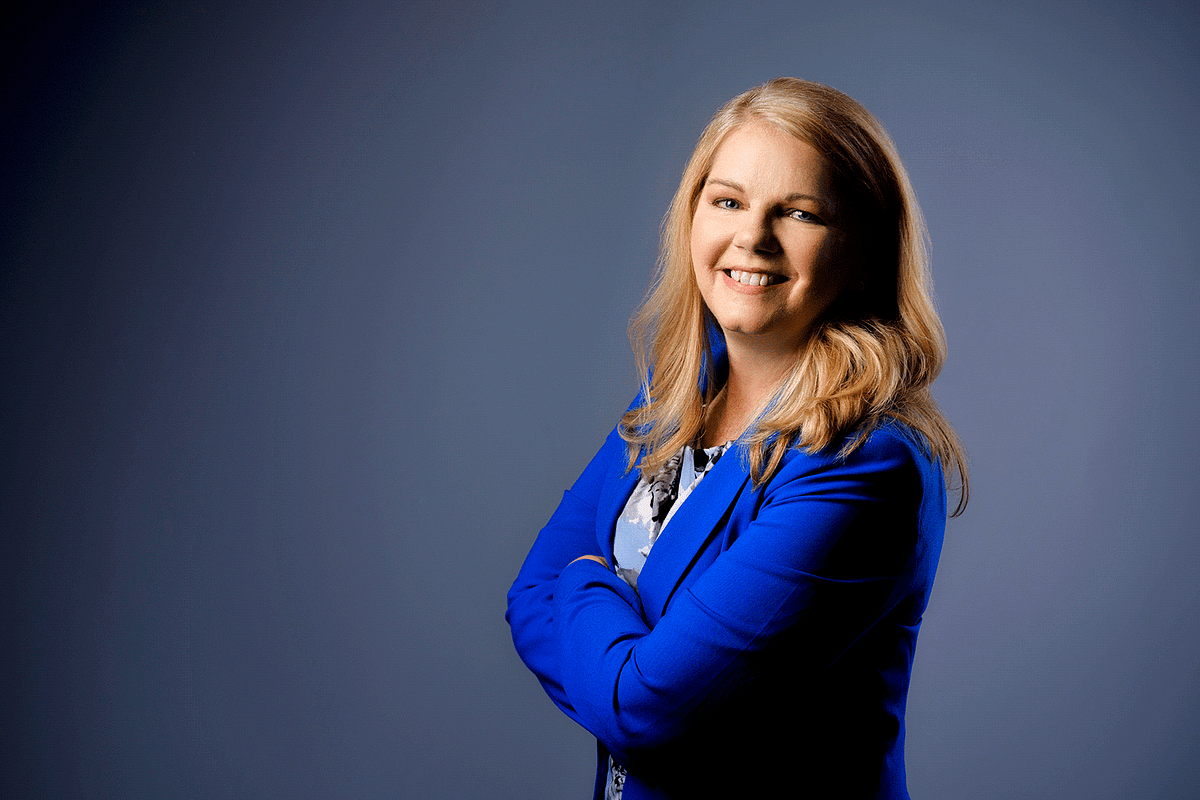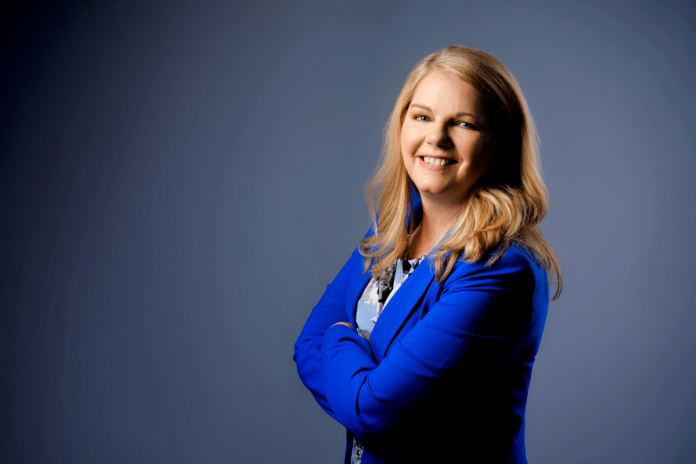“5 Things We Can Each Do To Make Social Media And The Internet A Kinder And More Tolerant Place” With Rosemary O’Neill

When you deal with a live human in person, you can read visual cues from each other, and respond accordingly. It feels like you have more control over the direction the conversation takes. Online, both of you are essentially “dehumanized,” making it much easier to escalate emotional impact. Worse, in online attacks, there is opportunity for pile-on from people who aren’t directly involved.
As a part of my interview series about the things we can each do to make social media and the internet a kinder and more tolerant place, I had the pleasure to interview Rosemary O’Neill. Rosemary is a two-time tech entrepreneur, speaker and writer, who has been helping people build online communities for more than 20 years.
Thank you so much for doing this with us! Our readers would love to “get to know you” a bit better. Can you share your “backstory” with us?
My husband (Ted O’Neill) and I are partners in every sense of the word. We’ve grown a bootstrapped SaaS business serving Enterprise customers over the last two decades. Our skill sets compliment each other, with Ted on the technology side and me on the marketing side.
Can you share the most interesting story that happened to you since you started your career?
In 2010, we decided to offer unlimited paid leave to all of our employees. It was a matter of treating everyone with the same respect, treating them like grown-ups. After a small news item in the local press, the story blew up into a national news frenzy and soon I was talking to the BBC, NPR, and Fox & Friends. At one point, I was giving a live news interview on the sidewalk outside my son’s basketball game! Fortunately, the idea isn’t so crazy anymore, and a lot of companies have adopted similar policies.
Can you share a story about the funniest mistake you made when you were first starting? Can you tell us what lesson you learned from that?
One of my early jobs was in corporate marketing, and one time I had to ship a large (4’ x 3’) presentation board via FedEx at the last minute. I worked past office hours to get perfectly done, and had to drive it to the airport FedEx pickup. There were two problems: first, it was snowing; second, I drove a tiny convertible at the time. So yes, I drove to Dulles Airport in the snow with my convertible down and a giant package sticking up. Lesson learned — -always plan two steps ahead when there’s a deadline! (Happy ending. The package made it on time.)
Are you working on any exciting new projects now? How do you think that will help people?
In April this year, we launched public Beta for a consumer content platform with blockchain-based rewards called Narrative.org. We’re solving the problem of content quality and moderation by putting control the hands of the members themselves. There’s a reputation system in place, as well as voting on almost every aspect of the platform. Our thesis is that things will work better when power is in the hands of the people.
Ok, thank you for that. Let’s now jump to the main focus of our interview. Have you ever been publicly shamed or embarrassed on social media? Can you share with our readers what that experience felt like?
Absolutely I have. Someone went to the lengths of setting up a domain that added the word “sucks” to our company name and then spreading it around. Not something you want to wake up to. As an entrepreneur who has put my whole heart and soul into our company, it felt very personal.
What did you do to shake off that negative feeling?
I always try to use humor in a situation like that. I mentally told myself that we’d “arrived” because someone cared enough to actually buy a domain to hurt us. How cool is that? You can’t control what other people do, but you can always control your reaction to it.
Have you ever posted a comment on social media that you regretted because you felt it was too harsh or mean?
I do have a sarcastic streak, so sometimes that’s a struggle. But fortunately I have always subscribed to the view that I shouldn’t post anything on social media that I wouldn’t mind appearing on a Times Square billboard with my name attached. That policy has served me well.
Can you describe the evolution of your decisions? Why did you initially write the comment, and why did you eventually regret it?
I have no regrets for any of my social media posts (possibly because I’m old enough that social media came along after I was already a grown-up). I’m so grateful, because it would have been tougher as a young adult dealing with these issues.
When one reads the comments on Youtube or Instagram, or the trending topics on Twitter, a great percentage of them are critical, harsh, and hurtful. The people writing the comments may feel like they are simply tapping buttons on a keyboard, but to the one on the receiving end of the comment, it is very different. This may be intuitive, but I feel that it will be instructive to spell it out. Can you help illustrate to our readers what the recipient of a public online critique might be feeling?
Often the subject of an attack is a company, which we think of as a monolithic, non-human entity. But companies are made up of humans, and the social account you’re tagging is run by a human (generally). There’s a person behind that logo. When you post an attacking comment, you are virtually derailing their day, and you’re potentially causing a negative ripple effect. Your nasty comment can send a shock wave through the recipient to everyone else that person comes in contact with.
Do you think a verbal online attacks feels worse or less than a verbal argument in “real life”? How are the two different?
When you deal with a live human in person, you can read visual cues from each other, and respond accordingly. It feels like you have more control over the direction the conversation takes. Online, both of you are essentially “dehumanized,” making it much easier to escalate emotional impact. Worse, in online attacks, there is opportunity for pile-on from people who aren’t directly involved.
What long term effects can happen to someone who was shamed online?
Being publicly humiliated can have long-lasting impact on someone’s self esteem. And often, online content lives on, appearing in search results for a long time. Online effects can even snowball into real-world impact — losing a job or a relationship.
Many people who troll others online, or who leave harsh comments, can likely be kind and sweet people in “real life”. These people would likely never publicly shout at someone in a room filled with 100 people. Yet, on social media, when you embarrass someone, you are doing it in front of thousands of even millions of people, and it is out there forever. Can you give 3 or 4 reasons why social media tends to bring out the worst in people; why people are meaner online than they are in person?
Social media can bring out the worst in ordinarily good people because 1) you can’t see the face of the person you’re attacking; 2) peer pressure to be snarky/funny can outweigh better judgment; and 3) the route from brain to keyboard is so fast that you can post something in 10 seconds and have it shared around the world with no filter.

If you had the power to influence thousands of people about how to best comment and interact online, what would you suggest to them? What are your “5 things we should each do to help make social media and the internet, a kinder and more tolerant place”? Can you give a story or an example for each?
- Take a beat before posting, especially if you’re emotional — this is the old-fashioned “count to 10” rule. Don’t make a straight pipeline from your brain to the keyboard, always build in a moment to reflect before posting.
- Amplify your happiness, not just your rants — people tend to post criticism, consumer complaints, rants, or political commentary much more often than positive thoughts, compliments, or constructive ideas. Evaluate your timeline and shift toward the positive side.
- Unfollow with impunity — if your feed is bringing you down, or you have negative people in your timeline, unfollow them (or block them if necessary). All social platforms give you tools to control who you’re following; use them! Then go follow some people who inspire you instead.
- Resist the urge to pile on — even if you have a witty retort that will go viral, don’t post it. You don’t have to jump into the mud just because it’s there. Just walk on by.
- Spend less time consuming/scrolling on social media, more time creating — catch yourself mindlessly scrolling and shift your mind toward creating something instead. Write an article, make a painting, build a sandcastle with your kids. Build instead of passively absorbing negativity.
Freedom of speech prohibits censorship in the public square. Do you think that applies to social media? Do American citizens have a right to say whatever they want within the confines of a social media platform owned by a private enterprise?
The short answer is no. A privately owned space is ultimately controlled by its owner/operator, who is allowed by law to set the rules of engagement. Yes, you have the right to free speech, but you don’t have the right to use a privately owned platform to do it. Until the US Government sets up a publicly owned “social media utility,” you have to live by the rules of the platform you’re using.
If you had full control over Facebook or Twitter, which specific changes would you make to limit harmful or hurtful attacks?
We’ve actually put in place some of the changes we wanted to see, in our new platform Narrative. This includes an interest-based timeline (which eliminates the algorithmic push of toxic content), member moderation and governance, and a built-in reputation system designed to suppress the impact of bad actors.
Can you please give us your favorite “Life Lesson Quote”? Can you share how that was relevant to you in your life?
My favorite quote is “Carpe Diem.” I’ve seen family members pass away without fulfilling dreams of things they wanted to do “later in life,” so it’s important to me to just go for it and seize the day, every day.
We are blessed that some of the biggest names in Business, VC funding, Sports, and Entertainment read this column. Is there a person in the world, or in the US with whom you would love to have a private breakfast or lunch with, and why? He or she might just see this if we tag them 🙂
I’d love to chat with Mel Robbins; her 5 second rule has changed my mornings forever. Her brand of common sense motivation really appeals to me!
How can our readers follow you on social media?
Of course on Narrative: https://www.narrative.org/m/rosemary
Twitter: https://twitter.com/rhogroupee


